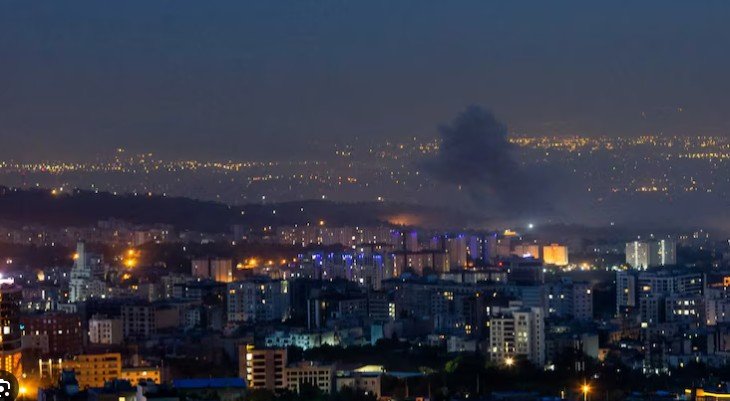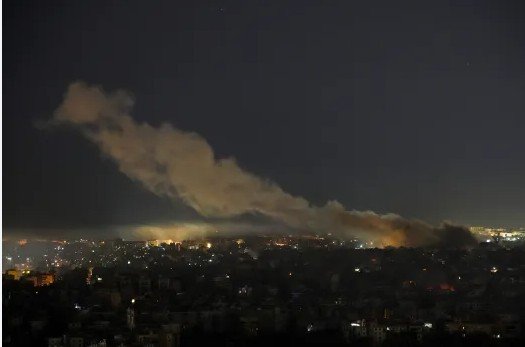In a dramatic escalation of the long-simmering tensions between Israel and Iran, Israeli warplanes launched a series of coordinated strikes on key Iranian nuclear facilities, marking a bold and dangerous phase in the shadow conflict that has gripped the Middle East for decades. The operation, dubbed “Rising Lion”, was swiftly followed by retaliatory drone attacks from Tehran, pushing the region to the brink of broader confrontation.
Preemptive Strike Targets Iran’s Nuclear Infrastructure
Israeli fighter jets flew over the Persian Gulf in the early hours of the morning and struck several Iranian nuclear outposts. Among the high-profile casualties was Major General Hossein Salami, commander of the Islamic Revolutionary Guard Corps (IRGC). Images broadcast from Natanz showed flames engulfing parts of the facility, with what appeared to be damaged centrifuges and blackened infrastructure.
Israeli Prime Minister Benjamin Netanyahu defended the assault as a necessary preemptive move, stating that Iran’s nuclear ambitions had progressed beyond speculation and posed an imminent threat. “A nuclear Iran is no longer a matter of probabilities,” he told the Cabinet.
Iran Retaliates with Massive Drone Barrage
Within hours, Iran issued its own response. The IRGC launched over 100 armed drones toward Israeli territory in what it called a “decisive act of retaliation.” Sirens wailed across Jerusalem as Israel’s Iron Dome and other air-defense systems scrambled to intercept the barrage.
Despite the efforts, several drones penetrated the defensive shield, with notable damage reported at the Palmachim Airbase. By dawn, dozens of strikes had hit Israeli soil, reigniting fears of sustained and escalating conflict.
Israeli Forces Expand Offensive
Israeli military spokesperson Brigadier General Effie Defrin announced that over 200 fighter bombers were deployed in a massive aerial campaign, targeting more than 100 Iranian military and nuclear-linked sites. Defrin described the operation as a bid to halt what he called “an emerging nuclear threat.”
Netanyahu reinforced that airstrikes would continue “for as many days as it takes,” echoing a refrain that has become familiar in Israeli military doctrine.
Iran’s Leadership Vows Harsh Response
Supreme Leader Ayatollah Ali Khamenei responded with characteristic defiance, promising severe retribution. Reports from inside Tehran suggest that Iran’s foreign-policy elite is engaged in emergency deliberations, crafting countermeasures and evaluating the broader geopolitical fallout.
International Concerns Mount
The International Atomic Energy Agency (IAEA) issued a statement confirming that Iran’s Bushehr nuclear reactor remained unharmed and that no abnormal radiation levels were detected at Natanz. However, analysts warn that the reprieve could be temporary.
Governments in Washington, Brussels, and other global capitals have urgently called for restraint, fearing that continued hostilities could spark a full-scale regional war.
Experts Warn of Wider Escalation
Military analysts are calling Operation Rising Lion the sharpest escalation yet in the covert war between Israel and Iran. The situation is fluid, with many fearing that the latest clash could spill over into a broader Middle East conflict involving multiple state and non-state actors.
Diplomatic backchannels are now working overtime, urging both sides to de-escalate before a new warfront emerges in an already fragile region.




Comments are closed.